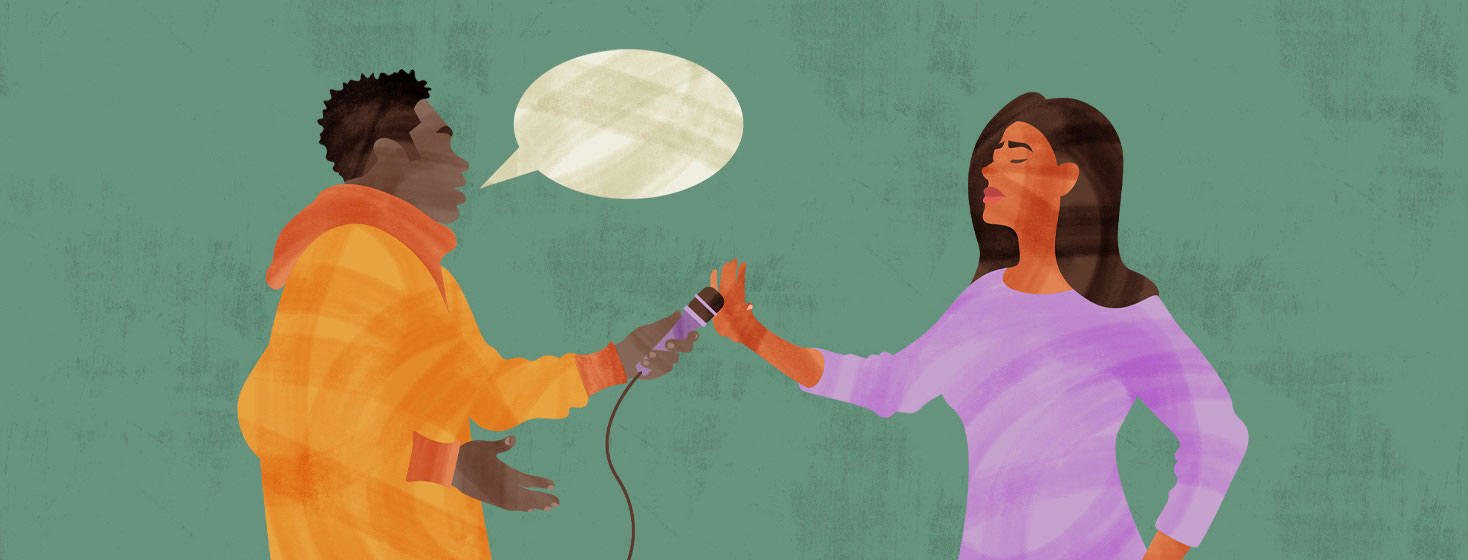Disclosing Your Disease
As rare disease patients, we have to become comfortable with explaining NMOSD. A lot of times, we are the ones telling the doctors about the disease. We constantly need to tell those around us what is happening just in case anything ever happens.
Meeting new people
Where I struggle is meeting new people. Any question I get asked always leads back to my diagnosis. I am not my diagnosis, but my diagnosis is a part of me. And that’s where I run into a conflict.
I hate feeling the need to tell someone immediately. I get questions asked like:
- Are you in school?
- Do you work?
- Who do you live with?
- Do you have a service dog?
- Why do you need to service stuff?
- Why are you on chemo?
- Do you have cancer?
- It's called what?
- So, like MS?
- Why can you walk if you were paralyzed?
The plethora of neverending questioning turns into a game of 20 questions real quick. If I immediately disclose my health, I typically get, "I'm so sorry for you. You're so strong!"
If I don’t tell them and something happens, that falls on me. I also feel like I’m lying if I don’t disclose that. See, we patients, and even caregivers, are put in sticky situations. There is no handbook on how to handle NMOSD.
Do what feels right
Everything is at our own discretion. These are usually the elicit responses: Either they listen and retain what you are saying about NMOSD, or it goes in one ear and out the other with no real understanding of what you just told them.
Dating as a rare patient is hard. Rejection is frequent because of the stigma surrounding being chronically ill. It’s not that I’m ashamed of what I have, but the stigma surrounding being sick is so very apparent. You get treated as fragile and are often time seen as weak.
So how do we deal with this In a way that makes us comfortable? You do whatever feels best for YOU. You have no obligation to tell anyone anything. I have gotten to the point where I can tell who deserves to hear this information.
Disclosing our disease is up to us
All I really need from people I tell is to remember the name of the disease. That benefits our community when the name is out there, but if you choose not to share this many people, that is completely ok!
In due time, you begin to find a way that works best for navigating all parts of the illness, not just disclosing it to people around you.
You deserve nothing but the best from people, and you set that bar. Not everyone deserves to hear your story because it is powerful and impactful, and some people are at the place in their journey to understand that, and that, too it’s OK.
Don’t be afraid to reach out to community members on this site and/or on our social media. We are always happy to answer questions, even ones that are uncomfortable. You got this!

Join the conversation